Tomasz Mizerkiewicz – teoretyk literatury, historyk literatury, krytyk literacki; profesor zatrudniony na Wydziale Filologii Polskiej i Klasycznej UAM w Poznaniu. Wydał między innymi monografie Niewspółczesność. Doświadczenie temporalne w polskiej literaturze najnowszej (2021), Po tamtej stronie tekstów. Literatura polska a nowoczesna kultura obecności (2013). Przygotowuje monografię Po konstruktywizmie, w której omówi nowe propozycje metodologii badań literackich zastępujące interpretacjonizm, narratywizm oraz konstruktywizm. Należy do międzynarodowego konsorcjum naukowego realizującego grant Horizon Europe Cartography of the Political Novel in Europe (2023–2027).
Tomasz Mizerkiewicz – literary critic, historian, and theoretician; Professor at the Faculty of Polish and Classical Studies, Adam Mickiewicz University in Poznań. He is the author of Niewspółczesność. Doświadczenie temporalne w polskiej literaturze najnowszej [Non-modernity. Temporal experience in contemporary Polish literature] (2021) and Po tamtej stronie tekstów. Literatura polska z nowoczesna kultura obecności [On the other side of texts. Polish literature and the modern culture of presence] (2013). He is currently working on a monograph entitled Po konstruktywizmie [After Constructivism], in which he discusses new literary methodologies which may replace interpretationism, narrativism, and constructivism. He is a member of an international academic consortium which works on the project Cartography of the Political Novel in Europe (2023–2027) funded by a EU Horizon Europe grant.
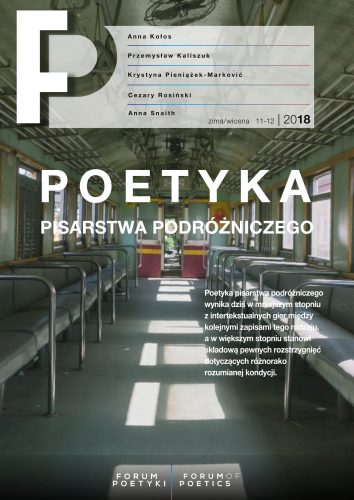
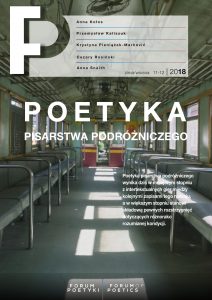 W dominujących wciąż typach analiz pisarstwo podróżnicze postrzegane bywa jako jedna z wielu tekstualizacji miejsc zwiedzanych przez autorki i autorów zapisów. Tekstualizacje te pozostają w retorycznych napięciach czy agonach z innymi tekstualizacjami, a ich sprawcy bywają nadal głównie dawnymi skryptorami Rolanda Barthesa. (...)
W dominujących wciąż typach analiz pisarstwo podróżnicze postrzegane bywa jako jedna z wielu tekstualizacji miejsc zwiedzanych przez autorki i autorów zapisów. Tekstualizacje te pozostają w retorycznych napięciach czy agonach z innymi tekstualizacjami, a ich sprawcy bywają nadal głównie dawnymi skryptorami Rolanda Barthesa. (...)
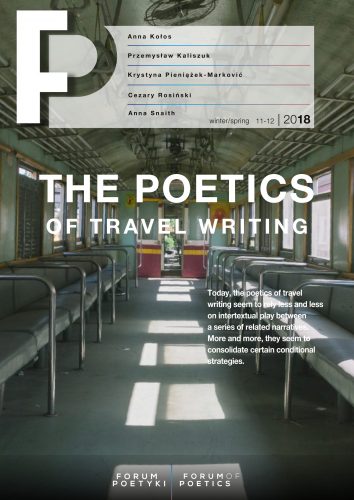
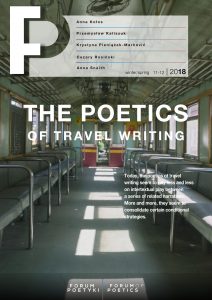 In analyses that continue to dominate the field today, travel writing is framed as one of many possible textualizations of the places visited by their authors. These textualizations are suspended in rhetorical tension or conflict with other forms of textual rendering, and the agents behind them tend to retain the status of Roland Barthes’ historical “scriptors.” The growing relevance of travel writing as a subject for philological reflection seems to stem, however, from several other cognitive impulses. (...)
In analyses that continue to dominate the field today, travel writing is framed as one of many possible textualizations of the places visited by their authors. These textualizations are suspended in rhetorical tension or conflict with other forms of textual rendering, and the agents behind them tend to retain the status of Roland Barthes’ historical “scriptors.” The growing relevance of travel writing as a subject for philological reflection seems to stem, however, from several other cognitive impulses. (...)
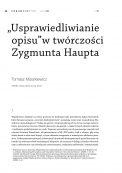
A b s t r a k t
Artykuł omawia problematykę opisu w twórczości Zygmunta Haupta z wykorzystaniem inspiracji płynących ze strony współczesnego „zwrotu deskryptywnego” w literaturoznawstwie. (...)
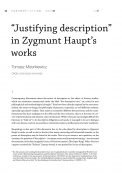
A b s t r a k t
This article discusses the problem of description in the works of Zygmunt Haupt in the wider context of the contemporary “descriptive turn” in literary studies. (...)
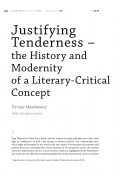
A b s t r a k t
This paper outlines the history and modern usages of the concept of “tenderness” in Polish literary criticism. It introduces the genealogy and origins in the esthetics of sentimentalism, along with its romantic modifications and its place in Polish literature and modern criticism. (...)
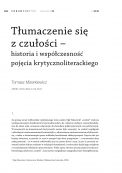
A b s t r a k t
Artykuł omawia historię i współczesność użyć pojęcia „czułość” w polskiej krytyce literackiej. (...)
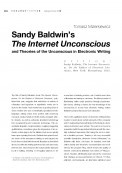
The title of Sandy Baldwin’s book The Internet Unconscious. On the Subject of Electronic Literature,[1] published last year, suggests that reflections on writers of e-literature and hypertext or algorithmic works are in store for the reader. (...)
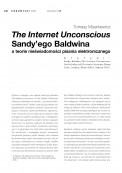
Wydana w ubiegłym roku książka Sandy’ego Baldwina The Internet Unconscious. On the Subject of Electronic Literature („Nieświadomy Internetu. O podmiocie literatury elektronicznej”)[1] tytułem zdaje się zapowiadać wyspecjalizowane rozważania o pisarzach i pisarkach tworzących e-literaturę, dzieła hipertekstowe, algorytmiczne itp. (...)
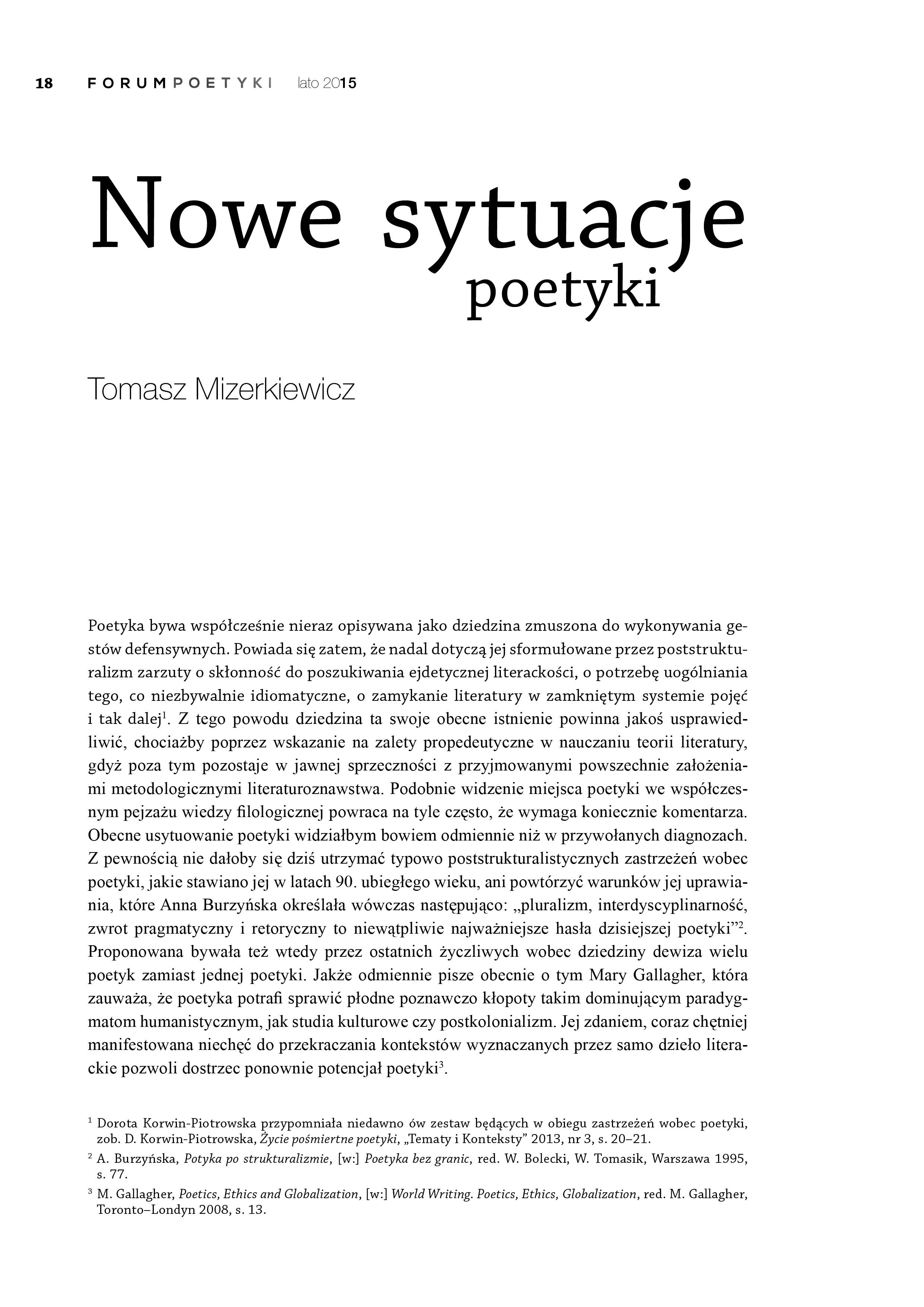
Poetyka bywa współcześnie nieraz opisywana jako dziedzina zmuszona do wykonywania gestów defensywnych. Powiada się zatem, że nadal dotyczą jej sformułowane przez poststrukturalizm zarzuty o skłonność do poszukiwania ejdetycznej literackości, o potrzebę uogólniania tego, co niezbywalnie idiomatyczne, o zamykanie literatury w zamkniętym systemie pojęć i tak dalej (...)
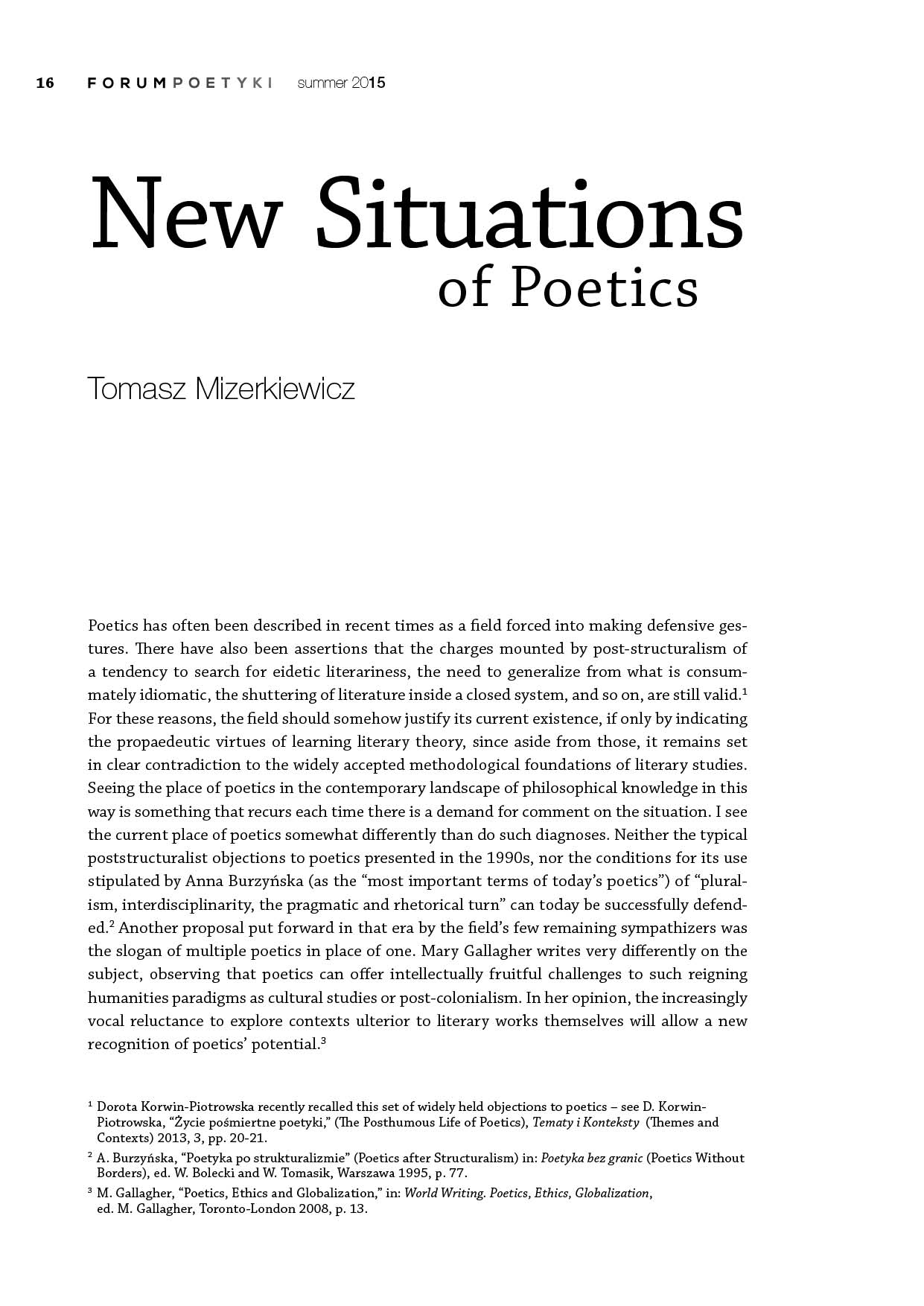
Poetics has often been described in recent times as a field forced into making defensive gestures. There have also been assertions that the charges mounted by post-structuralism of a tendency to search for eidetic literariness, the need to generalize from what is consummately idiomatic, the shuttering of literature inside a closed system, and so on, are still valid. (...)

 W dominujących wciąż typach analiz pisarstwo podróżnicze postrzegane bywa jako jedna z wielu tekstualizacji miejsc zwiedzanych przez autorki i autorów zapisów. Tekstualizacje te pozostają w retorycznych napięciach czy agonach z innymi tekstualizacjami, a ich sprawcy bywają nadal głównie dawnymi skryptorami Rolanda Barthesa. (...)
W dominujących wciąż typach analiz pisarstwo podróżnicze postrzegane bywa jako jedna z wielu tekstualizacji miejsc zwiedzanych przez autorki i autorów zapisów. Tekstualizacje te pozostają w retorycznych napięciach czy agonach z innymi tekstualizacjami, a ich sprawcy bywają nadal głównie dawnymi skryptorami Rolanda Barthesa. (...)














